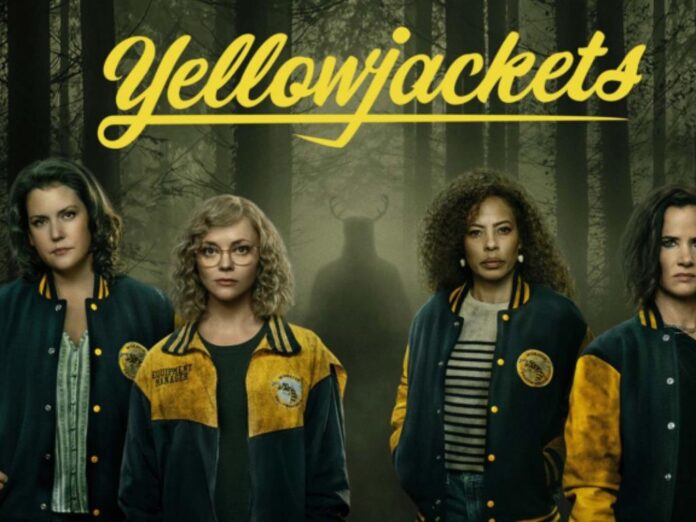If you know me in real life (or follow me on Twitter) you will have heard me say the word Yellowjackets. I don’t mean the animals that you spray insect repellent on, but the television show aired by Showtime. I always meant to get into it when it was released in 2021, but it never felt like the right time. I don’t recall what finally got me started on it, I just remember devouring the entire first season during the winter semester and then hungrily anticipating the now completed second season. Coming out on a weekly basis has made viewing even more difficult (hellooooo, I need answers) and even more suspenseful. But does season two live up to its great expectations?
If you haven’t seen the show, here’s the elevator pitch: A teenage girls’ soccer team goes down in a plane crash in 1996 and fights to survive in the wilderness. From there, the timeline flip-flops between the stranded teens and the present-day trauma-riddled adults they have become.
I badly wish I could delve into every single line delivery and acting choice in the show, but I’m trying to remain as spoiler-free as I can. Personally, a large part of season one’s success and major contributor to what makes Yellowjackets so good is the unbridled female rage. The show hasn’t lost this, but a more prevailing theme in the current season is humanity — and the loss of it. These girls are no longer freshly crashed. Instead, they are experiencing their first winter in the wilderness. They are starving, they are angry, and they don’t trust each other. In fact, some of the best moments in the show are when the audience is reminded these are still teenage girls going through it. The way the show leans into the female relationships is so incredibly well done that I worried we would notice a big absence of it if the second season shifted focus.
There is a divide amongst the group in the wilderness: those who believe there are “bigger” things at work, and those who believe only they can save themselves. One episode pits the two nominated leaders against each other in a hunt for food. While the other survivors are bickering, the two appointed leaders are caring for each other, laughing, and reminiscing about a time before the crash as though all the fighting leading up to this was nothing. It’s in these kinds of dynamics that I feel I am watching someone writing a strange metaphor for the turbulent female friendships many go through in their middle/high school years. A teen drama with the dial turned up to one hundred.
The writing and directing is so special to me. Since season three is on hiatus due to the WGA strike, I would say this show is a great example of needing to pay your writers what they’re worth. The teenage depiction of characters feels authentic and raw. Gone are the funny remarks from season one, replaced with the staleness that each character conveys the longer they go without food. Perhaps it is my inability to relate to the older characters, but I just don’t feel as connected to that particular timeline. This isn’t to say the story is uninteresting or the acting is bad! In fact, the acting is tremendous in my eyes. It just so happens that the writing for the ?90s flashbacks is so good that I am on the edge of my seat waiting for them to go back there.
The directing to me is rather interesting. Not to constantly compare to season one, but back then a lot of the shots were quick and snappy, which showed how everything is changing so fast for these characters. Season two has cold, lingering shots depicting the long winter they are in. That the present timeline is more or less directed the same way in both seasons highlights the tonal shift for the weary survivors. The acting is another thing that kept me coming back each week. It is hard to pinpoint individual actors, but Sophie Nélisse’s performance in episode six had me crying into my pillow with her incredible performance.
I could talk forever about Yellowjackets, but ultimately, you’ll have to consume it for yourself.
Eva Davey is a UFV student majoring in English Literature and minoring in Media Communications. She is a fan of poetry, oat milk lattes, and the final girl trope. Currently, her worst enemy is the Good Reads app.



